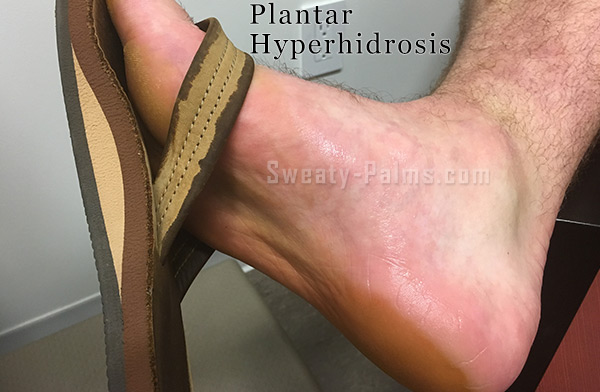Dermatology Tips and Treatments for Hyperhydrosis of Hands: Cutting-edge Solutions
Dermatology Tips and Treatments for Hyperhydrosis of Hands: Cutting-edge Solutions
Blog Article
Understanding the Root Reasons of Excessive Sweating and Its Influence On Life
While it is frequently comprehended as a physiological response to regulate body temperature level, the triggers for extreme sweating can vary widely among people, including not only physical factors yet additionally emotional and psychological elements. By diving into the origin triggers of hyperhidrosis and exploring its complex results, a deeper understanding of this prevalent problem can be acquired, losing light on the intricacies that individuals grappling with too much sweating navigate on a daily basis.
Physiology of Sweat Glands
The law of sweat production, an essential physical process, is largely managed by the activity of gland distributed throughout the human body. Gland are categorized into 2 primary kinds: eccrine and apocrine glands. Eccrine glands are the most numerous and are discovered in almost all locations of the body. They play a vital function in thermoregulation by secreting a watery fluid onto the skin's surface area, which helps and vaporizes cool the body down. On the other hand, apocrine glands are focused in areas abundant in hair roots, such as the armpits and groin, and their secretions are thicker and milklike in appearance.
When the body temperature level rises, either because of exercise, high temperatures, or psychological stress, the anxious system activates the gland to produce sweat. This sweat is composed largely of water and electrolytes like salt and chloride. The process of sweat production is necessary for maintaining the body's internal temperature within a slim, optimum range, highlighting the crucial function gland play in human physiology.
Triggers for Excessive Sweating
In understanding the origin triggers of excessive sweating, it is essential to recognize the triggers that can lead to this physical reaction. Physical physical effort, high temperature levels, and spicy foods are also recognized to cause extreme sweating in individuals vulnerable to this condition.
Furthermore, drugs such as some antidepressants, opioids, and certain supplements can additionally function as triggers for hyperhidrosis. Understanding these triggers is crucial in handling excessive sweating successfully - Treatment for hyperhydrosis of hands. By identifying and resolving the particular triggers that motivate extreme sweating in a specific, doctor can establish personalized treatment strategies to reduce this problem and improve the individual's lifestyle
Medical Conditions Associated
Connected with too much sweating are various medical problems that can exacerbate this physiological feedback. One common condition is hyperhidrosis, a problem identified by abnormally boosted sweating that goes beyond the body's thermoregulatory needs. This can materialize in focal locations like the hands, soles, underarms, or face, impacting an individual's high quality of life as a result of social shame and discomfort.
Furthermore, endocrine disorders such as hyperthyroidism, diabetes, and menopausal hot flashes can also result in excessive sweating. Hyperthyroidism causes an overproduction of thyroid hormones, accelerating metabolism and triggering sweating. Diabetes can induce sweating episodes, specifically throughout hypoglycemic episodes when blood sugar level degrees go down as well low. Menopausal hot flashes, credited to hormone variations during menopause, can trigger extreme and unexpected sweating, commonly gone along with by flushing and heart palpitations.
Moreover, infections like consumption, endocarditis, and hiv have actually been connected with evening sweats, a typical symptom recognized to interrupt sleep and influence general well-being. These clinical check out this site conditions highlight the varied series of underlying factors that can add to excessive sweating, demanding complete assessment and monitoring by health care professionals.
Emotional and emotional Variables

Effect On Social Interactions
Too much sweating can have profound results on an individual's capacity to engage easily in social interactions. The visible indicators of sweat spots or damp patches on garments can lead to humiliation and self-consciousness, creating individuals to take out from social scenarios. This withdrawal can affect partnerships, limit social activities, and prevent specialist and personal growth.

In addition, the anxiety and self-confidence problems originating from too much sweating can affect communication and interpersonal skills. People might battle to concentrate on discussions, participate in group activities, or express themselves confidently. This can cause sensations of seclusion and isolation, as social links come to be testing to keep.
Verdict

While it is generally recognized as a physical reaction to regulate body temperature, the triggers for too much sweating can differ commonly among people, incorporating not just physical elements but also psychological and mental aspects. By delving right into the origin causes of hyperhidrosis and discovering its diverse impacts, a deeper understanding of this prevalent issue can be gained, losing light on the complexities that individuals grappling with too much sweating navigate on a day-to-day basis.
Physical effort, high temperatures, and spicy foods are additionally understood to trigger too much sweating in individuals vulnerable to this condition. By identifying and resolving the particular triggers that motivate extreme straight from the source sweating in an individual, health care service providers can create individualized treatment plans to alleviate this problem and a knockout post improve the individual's top quality of life.
Extreme sweating can have extensive impacts on a person's ability to involve comfortably in social interactions.
Report this page